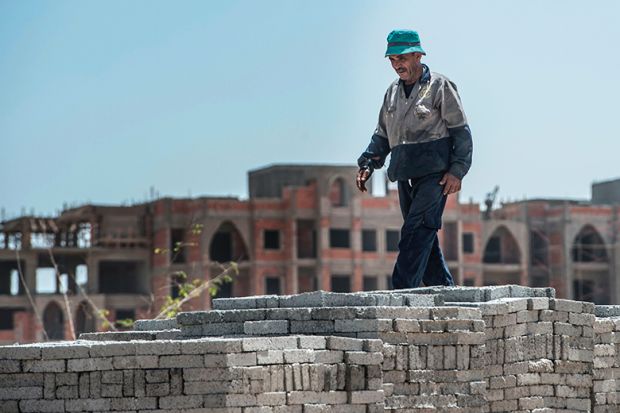As academics, how much should we care about ensuring that our research gets into the hands of those who can deliver change? Is it even our role to do so?
My experience researching global urbanism at the University of Manchester’s Global Development Institute involves working with civil society organisations, non-governmental organisations, social movements, funders and policymakers particularly in the global South, who are using, or could use, my research.
The ethical dilemma of whether a researcher should be taking a position on their research is getting more discussion now because achieving impact is increasingly a requirement from funders. This means that someone has to read or hear about your findings. But how do you know who to work with, how to best work with them, and who to trust?
For me, the key is to work with people actively seeking solutions and to stand firm in your position. When you’re working with government officials, look for someone who shares your values: in my case, someone who is concerned with issues of poverty and exclusion. The point of your work is not to try to challenge an official’s core values – that’s the job of NGOs. In my area of research, academics who try to persuade people to change their values will not succeed.
Our role is to use our research to help officials understand how to best achieve their aims. With politicians, you can talk them through different scenarios and show them evidence that, say, implementing their original plans would be more complicated than they might have thought.
While politicians will be concerned with votes, officials and civil servants care about more complex issues such as reducing risk. Because of this, they are often reluctant to try anything novel or something that hasn’t worked well in the past. Know who you’re talking to and present to them in a reasoned way, adjusting your approach as needed to suit the audience. Never go into those meetings cold, and never go in on your own, if you don’t know the full context.
If you’re asked by an NGO to go into a meeting with a politician or an official, ask what role you as an academic will play and how you can add value. From the looks on people’s faces when I ask this of NGO professionals, academics rarely raise such questions. Once you get experience working with your NGO partners, they can even cue you into the right part of the meeting so you can present “the evidence” at the right time.
Take the example of an official who may be looking to evict (and possibly relocate) an informal settlement because a politician wants to “clean up” the city. In this context, my role is to explain how this may cause problems for the existing residents – most of whom will be working in the city in either formal or informal work.
I might give the example of a city that tried to do this and the kinds of problems that resulted. These problems might include protest demonstrations (and the subsequent political challenges those pose for local authorities) and people facing difficulties getting to work. I might also discuss the evidence we have that this approach does not work and talk about the ways that populations find to return to the city. Then I would share positive examples of upgrading informal settlements from elsewhere, drawing on experiences from cities that are similar or that the city authorities aspire to emulate.
Finally, you should avoid spending too much time attracting the attention of politicians who want to be associated with your research but aren’t in a position to really help. For example, an internationally funded research consortium might get the attention of a minister or a high-ranking official who will attend a research meeting for the PR photo but won’t actually make a contribution to the work you’re doing.
We don’t have to do this all alone. We should look to leverage support from our universities, which have communications teams that can advise on media, impact, public engagement and reaching policymakers. I’ve found that working with communications colleagues over a period of time ensures that they build a greater understanding of my research topics as well as the advocacy opportunities within my research.
Diana Mitlin is a professor of global urbanism, focusing on urban poverty, at the University of Manchester’s Global Development Institute, where she has worked as managing director since 2015. She is also principal researcher at the International Institute for Environment and Development.
POSTSCRIPT:
Print headline: Put your work to work for change
Register to continue
Why register?
- Registration is free and only takes a moment
- Once registered, you can read 3 articles a month
- Sign up for our newsletter
Subscribe
Or subscribe for unlimited access to:
- Unlimited access to news, views, insights & reviews
- Digital editions
- Digital access to THE’s university and college rankings analysis
Already registered or a current subscriber? Login










